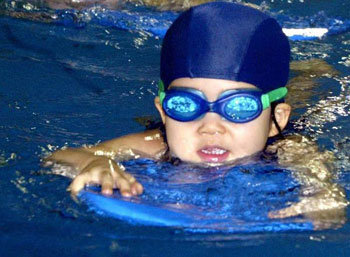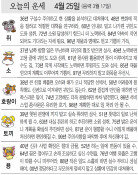Managing Diabetes in Children

What causes diabetes in children?-
There are two types of diabetes in children: type I and type II. Type I diabetes is characterized by the loss of insulin-producing beta cells in the pancreas leading to a deficiency of insulin. Type II diabetes allows for the creation of insulin. Patients suffering type II diabetes, however, are impaired because glucose, the energy source of the human body, does not travel to cells. The second type is more commonly found in adults.
Recently, there has been a surge in child patients suffering from type II diabetes, not type I. This has much to do with obesity that is caused by an unhealthy diet and a lack of exercise. Obesity inhibits the normal process of insulin and leads to type II diabetes.
Prior to 1985, type II diabetes in children was very rare in Korea. Since the mid 1990s,however, this number started growing and by 2000, one-fourth of all child diabetes patients had type II diabetes.
Children with diabetes will show the same symptoms as adults with the disease. They will feel thirsty and tired. If children suddenly drink lots of water, visit the restroom more often and tire easily, parents should suspect diabetes. Some patients are too late and bring their children to the hospital only after their children feel stomach pain, vomit, and lose consciousness.
Parents should take action-
Growing children should not receive the same treatment as adults because their bodies are developing. If their food intake is limited and they engage in unusual diets, their growth will be stunted and there will be side effects. Children with diabetes should take in as many calories as other children while abstaining from snacks and junk food.
The child will feel deprived if parents prohibit them from eating, said Professor Han Seung-hoon of the Holy Family Hospital. Parents should focus on building good habits for their children like walking 30 minutes longer than normal after eating a snack.
It is also good for children to keep a diet diary. It will lead them to record what they ate and consider how many calories they take in. Children should be used to checking if they are not getting enough nutrition and whether their diet is well balanced on their own. Children move around a lot, and they could faint or have a seizure during rough exercise because of a drop in insulin levels. This is why they should carry around sweets and juice drinks. It would be wise to let a friend or teacher know how to help your children in such an event.
It is good to skip rope, jog, or hike within 30 minutes to one hour after eating meals. Children should not exercise when hungry. It would be even better if parents exercised with children to reinforce this habit. They should pay attention to psychological aspects as well. Some children feel depressed or nervous about living with an incurable disease.
Children have a higher chance of developing complications because children live with diabetes longer than adults, said Director Park Sung-woo of the Kangbuk Samsung Hospital. Children can feel depressed, so parents should work to develop a healthy lifestyle for their children. Music therapy or psychological theory could help them feel more calm.
Recent trends in diabetes focus on treatment and prevention-
Type I diabetes patients receive three to four syringe shots a day to prevent complications. Children should pay more attention to preventing complications. If the child develops diabetes before puberty, he or she should get checked once a year after five years. If the child develops it during puberty, he or she should get checked every year after two years. In other countries there is a way to receive prevention treatment through the nose (Exubera from Pfizer) and a treatment that can be eaten is in development.
Type two diabetes can be prevented. Parents should see to it that children have a well balanced diet and are not overweight. Children should receive a urine test for diabetes if diabetes runs in the family or the child is overweight, said Professor Kim Ho-sung of Yongdong Severance Hospital. It is better to feed infants breast milk to prevent diabetes as well.
likeday@donga.com
Headline News
- Med professors announce intention to leave hospitals starting Thursday
- Bridge honoring Sgt. Moon Jae-sik unveiled in Pennsylvania
- Chief of Staff Chung tells presidential secretaries to stay away from politics
- US FTC bans noncompete agreements
- N. Korea launches cyberattacks on S. Korea's defense companies







